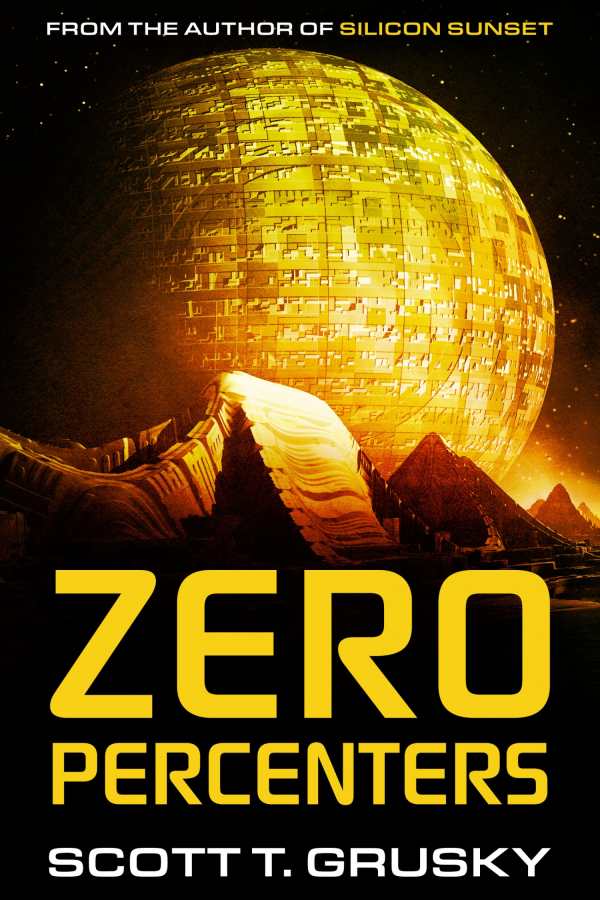Zero Percenters
Zero Percenters is philosophical science fiction—a novel take on what it means to be human.
In Scott T. Grusky’s science fiction thriller Zero Percenters, a young woman grapples with morality as humanity evolves into a digital form.
In 2024, a tech giant discovers a means of digitizing a functioning organ that would allow a human to continue living. News breaks; the company is attacked, and all of the related information is stolen. To prevent its nefarious use, the company releases the information itself, leading to an unexpected discovery: the entire human body and mind can be digitized and contained within a special shell.
As the world digitizes, the CEO’s daughter Anja, an avid activist, returns home to discover that she’s one of a handful of humans left undigitized. Anja debates joining the so-called zero percenters—people who are zero percent flesh—while she’s protecting them. When she’s wounded, she agrees to transition. As the last remaining link to the company that created the technology, and because of her status as the last to transition, she’s thrust into a position of power. Anja seeks a new balance for the digital humans on the dying earth.
The technology that allows for digitization, and the process by which the shell can contain digitized people, is vague and fantastical. The zero percenters become a metaphor for humanity and consciousness, despite the unusual shapes that the shell can take. A slow shift from science fiction elements into those of contemplative rumination about what it means to be human occurs; related ideas and concepts are fascinating, but are not expanded upon.
Within the book, zero percenters are required to maintain a continual connection to a shelled AI concierge; Anja’s concierge is the most intriguing character in the story. She rejects her concierge at first, but then names her after a favorite flower, Vicia Cassubica. Vicia, through her bond with Anja, strives to achieve humanity. While every other character is quick to toss their human nature aside, Vicia dedicates her downtime to mastering meditation and to understanding life through human eyes. The sections of the narrative devoted to Vicia are the most engaging; they are undercut when Anja discovers the means of replicating the human consciousness in exact detail.
The book is rushed at first, especially as it focuses on the discovery and implementation of the digitization process. When Anja returns home, the pace slows to make room for contemplative moments and introspection. The slower pacing gives too much room to Anja refusing to transition, but also opens the floor for Vicia’s unique narrative. The story comes to a jarring stop as Vicia’s arc is cut short.
All dialogue is functional but devoid of life. The prose is more dynamic; it balances exposition with development, alternating between characters’ thoughts and actions, including Vicia’s inner struggle with achieving consciousness while assisting Anja in her day-to-day life. The sections without dialogue are most engaging; they achieve a poetic, dream-like tone. The contrast between the flowing language and cold technological processes is interesting.
Zero Percenters is philosophical science fiction—a novel take on what it means to be human.
Reviewed by
John M. Murray
Disclosure: This article is not an endorsement, but a review. The publisher of this book provided free copies of the book and paid a small fee to have their book reviewed by a professional reviewer. Foreword Reviews and Clarion Reviews make no guarantee that the publisher will receive a positive review. Foreword Magazine, Inc. is disclosing this in accordance with the Federal Trade Commission’s 16 CFR, Part 255.

